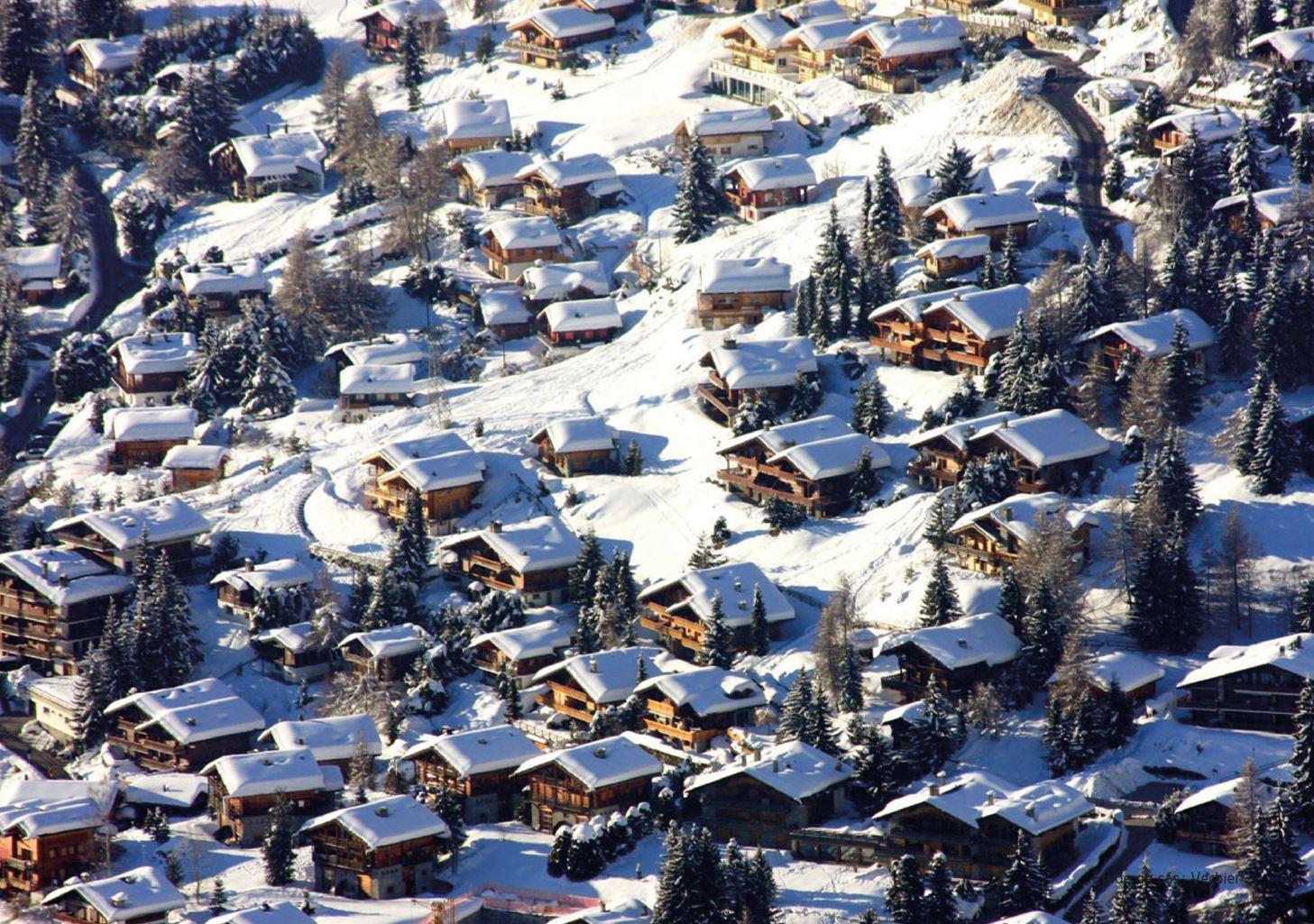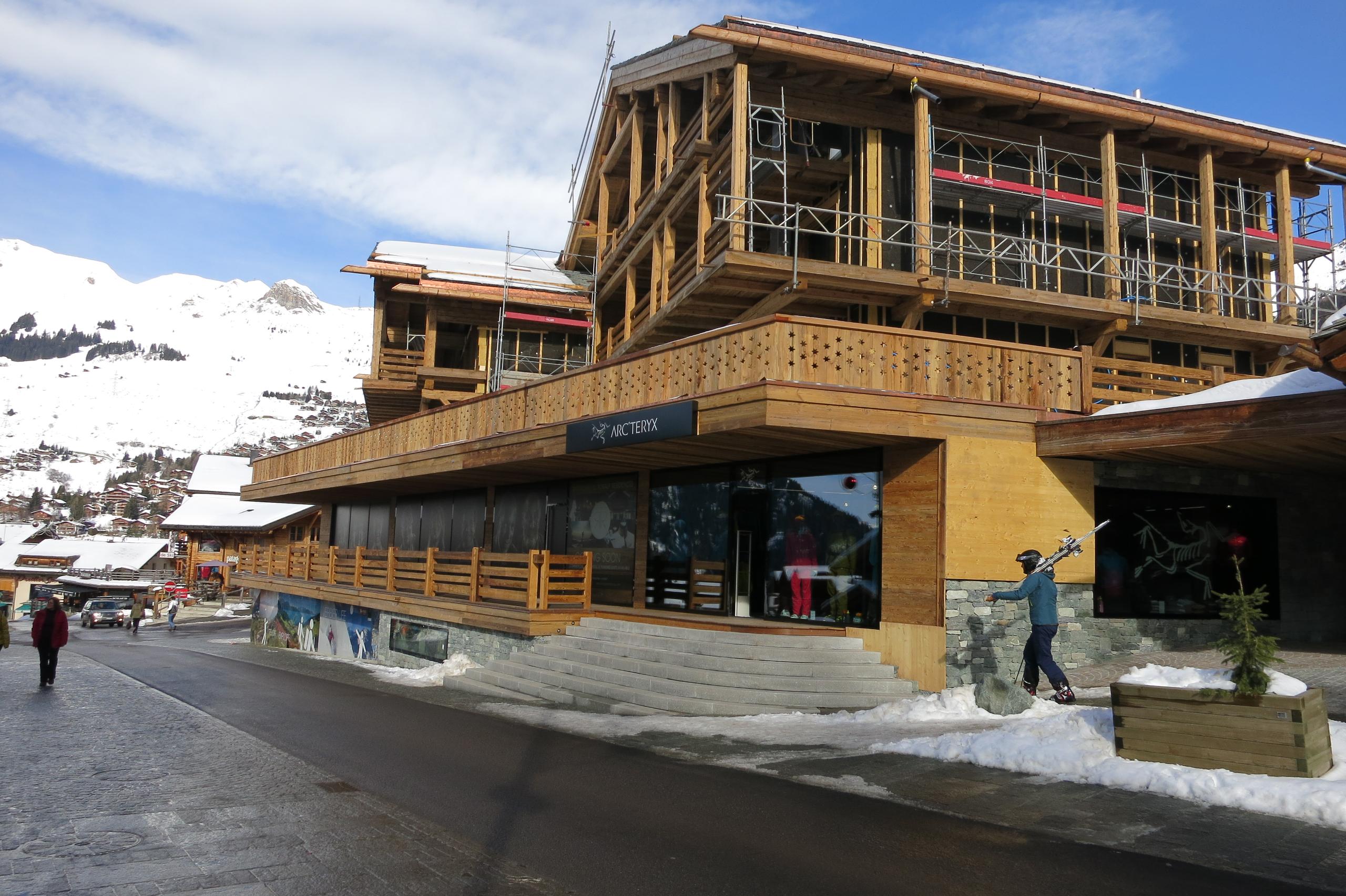Is the party over for the chalet holiday?

In the winter of 1958-59, a British 27-year-old travelled from London to the Swiss village of Grindelwald to take up a job. Lovedy Cornish, or Moule as she was then, would be looking after British tourists, mainly cooking and making beds, but she was also making history. For, though no one thought much about it at the time, Lovedy was the world’s first chalet girl.
“We had the upstairs floor of a chalet, the bottom half was owned by a family who ran a hardware store,” she told me this month from her home in Cambridge. “The first group of guests included four public schoolboys, a nurse, a secretary, two American airmen and an English major who was drunken and amorous in turn. So it was what you might call a mixed group.”

Prior to the second world war, skiing had been a holiday for a tiny clique of aristocratic enthusiasts who stayed at grand Victorian hotels in the Alps. But by the end of the 1950s the sport was beginning to appeal to a slightly wider group of young people hungry for adventure and fun after the years of postwar austerity.
Since 1953, the travel industry pioneer Erna Low had been running ski “parties”, in which groups of Britons travelled to the Alps together with a host. But it was a former member of Low’s staff, Colin Murison Small, who came up with the idea of renting a chalet for a season, installing a host and sending out groups of guests by the week or fortnight. His 1958 brochure — three pages of typewritten and copied foolscap — offered “comfortable, though not luxurious or spacious” accommodation, catering including “tea with bread and butter and jam at no extra charge” and, crucially, free wine at dinner.

“It wasn’t very good wine but they enjoyed it,” recalls Cornish, who knew Murison Small through a madrigal group they attended in London. “After dinner, people used to come into the kitchen and help wash up, they mucked in. And then they used to go out on the town, dancing and drinking too much, and I would go with them quite often.”
The price — £31, including rail and ferry travel from Victoria station — was a relative bargain, but just as important was the atmosphere, the sense of being among friends rather than amid the starchy formality of an Alpine hotel. And for young Britons with little experience of foreign travel, there was a friendly helping hand as they battled with unfamiliar ski equipment and the rudimentary lift systems.
So the model caught on and, while other nations took ski holidays as families or couples, for Britons winter sports became synonymous with sociable group holidays. Somehow the normal national reserve seemed to vanish after days in the fresh air. While sharing a dinner table with strangers each night would ordinarily be purgatory, the cosy wood-panelled surroundings and the chance to share tales of exploits on skis seemed to override any reticence. Or maybe it was just all the free wine.
No more high jinks?
Now, though, after 60 years of high jinks, the chalet seems at risk of terminal decline, imperilled by a pernicious combination of coronavirus and Brexit. Earlier this month Crystal, the biggest British ski tour operator, announced it was cancelling its entire chalet programme for this year. Hotelplan UK (which operates hotels and chalets through the brands Inghams, Ski Total and Esprit Ski) says it has cut its roster of chalets from about 120 to 60. The trade body Seasonal Businesses in Travel (SBIT) says anecdotal evidence suggests a similar 50% cut, on average, across its 200 members.
“I think it’s now inevitable that there will be very significant capacity reductions announced in the weeks ahead,” says Craig Burton, chief executive of the tour operator Ski Solutions. “It’s grim, to be honest — we’ve never faced down anything like this before.”
As we enter what would ordinarily be the peak autumn booking period for British skiers, there are quarantine restrictions in place for almost all the key destinations, including France, Switzerland, Austria, the US and Canada. Whereas operators using hotels can switch to a last-minute booking model with little financial risk, those operating chalets need to commit to hiring staff and renting properties for the entire season.

Brexit only increases the jeopardy, making it impossible for British companies to send out staff at short notice after January 1, should the quarantine situation improve. “We’re either in it from the start or we’re not,” says Anne Williams, head of marketing at Hotelplan UK. “There is a lot of pressure right now.”
And while some companies could write off one winter, Brexit presents a bigger structural challenge to the entire model. Chalet companies have always relied on young British staff whose relatively low pay is boosted by the offer of accommodation, a lift pass, time to ski and plenty of fun. Almost all have been employed in the UK, where they pay tax and national insurance, while working in the EU as “posted workers”.
Thrown in the towel
According to SBIT, from January staff will have to be employed by companies registered in the host country and both employer and employee will pay social-security contributions locally, at significantly greater rates. All staff will need visas to work and stay and employers will need to demonstrate that local workers were unable to fill the role. “At the moment we understand the process of applying for those visas takes at least three months, with no guarantee at the end of it,” says Diane Palumbo, sales and marketing director of Skiworld and spokesperson for SBIT. For a job only intended to last four months, that is a major logistical burden.
Already some chalet operators have thrown in the towel. The last two months have seen the demise of the Val d’Isère-based Project Ski and SnowChateaux, which ran 22 catered chalets in the French Alps. “Even prior to the pandemic, quite a few SBIT members were feeling that the environment in Europe meant they couldn’t operate their business, so they were simply going to close at the end of this season,” says Palumbo. “There’s no big announcement, they just quietly disappear.”
In Murison Small’s first season, guests would leave London at 9pm on a Friday, travelling out via Dunkirk, Basel and Interlaken and arriving at Grindelwald at 7.37pm the following day. On the return leg they left the station at 7.20pm on Saturday. “This gave Lovedy 17 minutes to clean the chalet between groups,” Murison Small told the Ski Club of Great Britain’s journal in 2003.

The expansion of charter flights in the 1960s changed all that, simplifying logistics and perfectly dovetailing with the chalet’s weekly schedule: planes could travel out with one group, returning with the previous guests, so both airline seats and chalet beds remained full. As a result, catered chalets became the most popular accommodation choice for British skiers, a dominance that continued for decades. Even in 2007, the Ski Club of Great Britain found 37% of the 1.35m British skiers stayed in catered chalets, compared to 31% in hotels and 20% in self-catered apartments.
For Britons, chalets — and the girls and boys who staffed them — became deeply entwined with perceptions of the sport. When the band Wham! wanted to capture some winter sports glamour for their 1984 hit “Last Christmas”, they set the video in a chalet in Saas Fee. The 2011 skiing romcom starring Felicity Jones and Ed Westwick was shot in St Anton and called, inevitably, Chalet Girl. Jenny Jones, who in 2014 became the first Briton to win an Olympic medal on snow, learnt to snowboard while working as a chalet girl in Tignes. Even Prince Andrew’s former wife, Sarah Ferguson, once worked in a chalet in Verbier.
“I think what made chalets special is that we made friends with our guests and we were part of their holiday,” says Julia Beldam, another former Murison Small employee who set up her own chalet company, Ski with Julia, in Verbier in 1974. “We sat and had dinner with them, we were there at breakfast, we chatted to them, skied with them, had a drink with them. The food was basic and the wine was revolting but it was just huge fun.”
Where once there was a shared bathroom, thin partition walls and a rush to get the first bath before the hot water ran out, chalets grew increasingly luxurious. In 2007, Richard Branson opened The Lodge in Verbier, a property that blurred the lines between chalet and private hotel, with a swimming pool, Jacuzzi and private ice rink, a lift, gym, even a mini gift shop. At the time it was the most expensive chalet in the Alps, at £57,000 per week in peak season, a figure that has since been dwarfed by properties such as Chalet N in Oberlech, Austria, which sleeps 22 and costs up to £415,000 per week.
Meanwhile, as the small chalet operators grew, they were able to gain economies of scale and offer prices that opened up skiing to a much wider demographic. “We got to the stage where we were ordering 77,000 litres of wine for the season,” says Palumbo. Thriving operators committed to leasing chalets on three-, five- or seven-year contracts, which again drove down prices.
All now agree those days are over, that prices will rise and chalets will become scarcer. “It’s a lot more complicated to run chalets properly nowadays — you can’t just make it up as you go along like when I started 38 years ago,” says Nick Morgan, whose company Le Ski runs 33 chalets in the French Alps. “So I think it’s going to come full circle. Chalets started as a very specialist holiday, then became mass market and now it’s going to go back to being small-scale. In one way that’s fine but I think it’s a shame.”
Lost opportunity
Even if some chalets remain, the future of the British chalet boy and girl looks more uncertain. Morgan says he plans to accept rising costs and red tape and keep employing UK staff (“It’s such a quintessentially British activity, I just think it wouldn’t be the same without them”) but others are already switching their efforts to recruit locally. Hotelplan UK says it foresees a hybrid model, with some jobs carried out by locals, others, such as specialist childcare, by Britons.

More
The problem with the Swiss chalet
“I just feel really sad about the loss of the opportunity for 18-35 year olds to experience a different culture, to travel, ski and then bring that knowledge back to the industry here,” says Palumbo. So far, she notes, SBIT members have struggled to recruit in other countries, because the job of the chalet boy or girl, with its blend of cooking, cleaning and hosting, is so unfamiliar.
Some see a brighter future in offering more flexibility — allowing guests to self-cater but with the option of pre-prepared meals being delivered or chefs coming in on certain nights of the week. Others suggest a pivot from sociability to privacy, with a focus on smaller chalets being rented in their entirety.
“Given how successful it has been all those years, I would have thought it will come back eventually,” says Lovedy Cornish. “Mind you, there might not be any snow by then.”
Copyright The Financial Times Limited 2020

More
The real face of the quaint Swiss chalet

In compliance with the JTI standards
More: SWI swissinfo.ch certified by the Journalism Trust Initiative








You can find an overview of ongoing debates with our journalists here . Please join us!
If you want to start a conversation about a topic raised in this article or want to report factual errors, email us at english@swissinfo.ch.